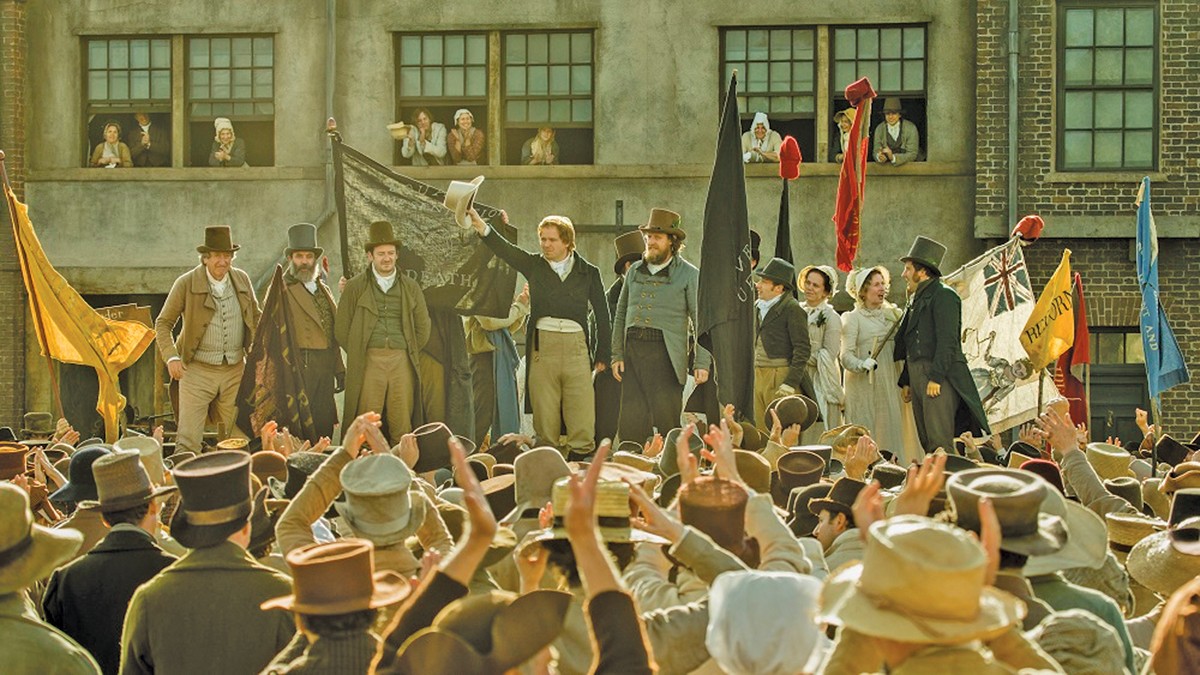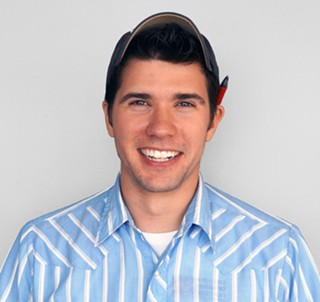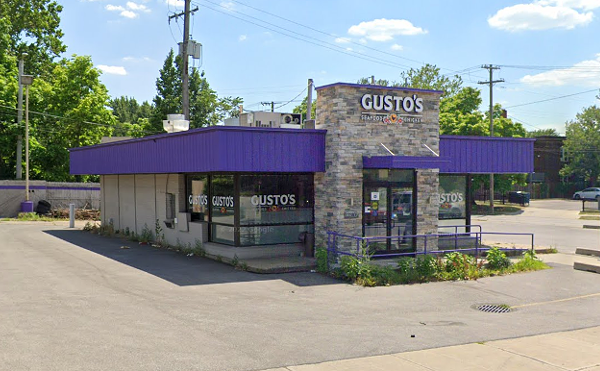Mike Leigh's Peterloo, which opens Friday, is a historical epic that crams more political oratory into two-and-half-hours than any film ever made. It is a movie of speeches: speeches before British parliament in the high rhetoric of 1819; speeches at taverns and meeting halls and fields, where the weavers and commoners of Manchester agitate for radical reform; speeches, in draft form, practiced before family members or rehearsed in private; speeches, even, that gathered crowds can't quite make out.
It is a curious film: at times acutely satirical, with the sort of grotesque portraiture clearly aimed at contemporary parallels; but at other times as void of drama and affect as a PBS historical documentary.
"Peterloo" refers to a massacre by the British military (both volunteer and official army units) of citizens attending a political rally at Manchester's St. Peter's Square. In the years following the Napoleonic Wars, chronic underemployment and food shortages had led to miserable conditions for the working class, and reform-minded communities in Britain's north were drumming up support for the right to vote. At the time, only landed men cast votes for their local members of parliament. A known orator, Henry Hunt (played in the film by Rory Kinnear) was to be the featured speaker, and local magistrates were keen to punish those who dared to assemble.
The violence at St. Peter's Square is the film's finale and is the functional equivalent of the Live Aid concert in last year's Bohemian Rhapsody. While Leigh and his cinematographer Dick Pope effectively capture the tumult and terror of the event without exaggeration, I confess feeling very little emotional attachment to the crowd.
Part of that is because the film, which begins as an intimate portrayal of a Manchester family, becomes, totally, a chronicle of a political campaign. With only one exception, the "scenes" don't feature people discussing how parliamentary reform would affect their lives. There is no love story occurring alongside the campaign for reform, for example. There is no friendship in which one person is invested in the cause and one is suspicious of it. It's entirely a narrative of the cause itself, its proponents and logistics. It's all about writing speeches, delivering speeches, and determining the time and location of speeches. In what was clearly a choice, there isn't even any music accompanying the speeches. Leigh seems interested in presenting an undoctored, unvarnished account of events, which means most of the dialogue is stuff like: "Forbearance, gentlemen, forbearance. And here is my dear friend, Mr. Bagley, with a few words on reform."
This sort of impersonal account is most effective with the story's villains — the local judges, who, watching from a window, ultimately call in the troops at St. Peter's Square. In an early montage, they revel in harsh sentences for the local poor. And throughout the film, they huddle in conference, fretful and disdainful of the growing menace. These men are obviously caricatures, but one wonders whether current leaders in Britain and America refer just as frequently to their own intellectual and moral superiority.
Leigh's British period pieces (Mr. Turner, Topsy Turvy) are always decadently costumed and shot, and Peterloo is no exception. There's a moment, midway through the film, when a group of men are seen practicing a march in ranks and columns, from a distance, in the hilly countryside. It's a glorious shot of the land and its people. And it's a glorious reprieve from the cloistered confines of the script and its many, many words.











